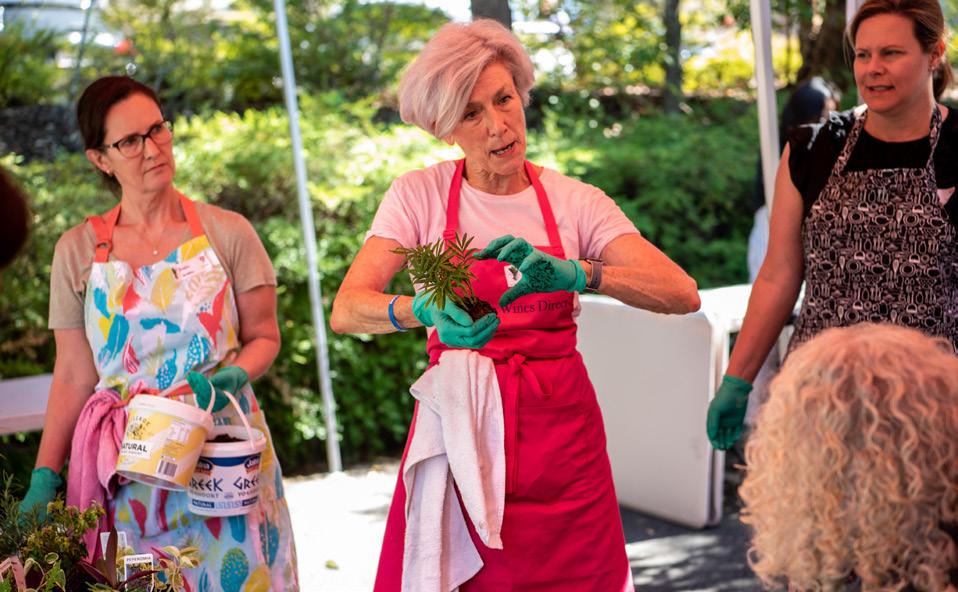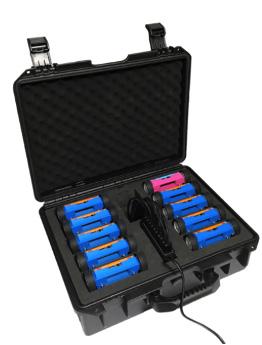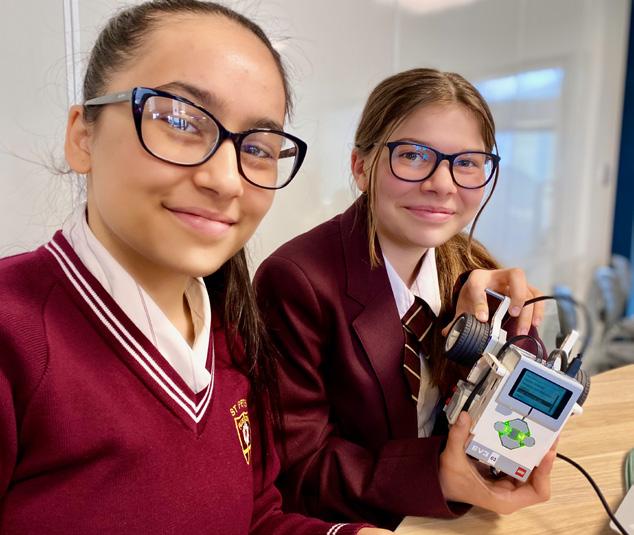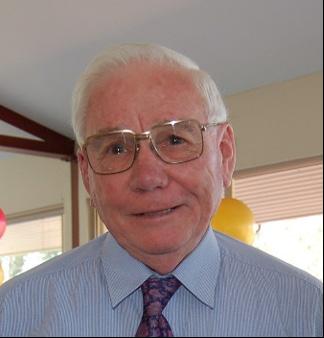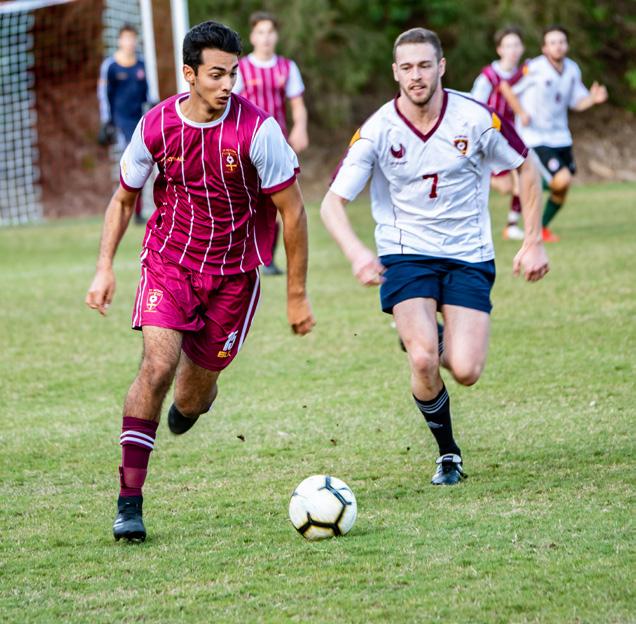
4 minute read
Ironbark: unbreakable
Bushfires in 2019, a global pandemic in 2020—the College’s iconic outdoor education experience has had a lot thrown at it, but, like its timber namesake, has proven strong enough to weather the storm!
KELSEY BRICKNELL
communications officer
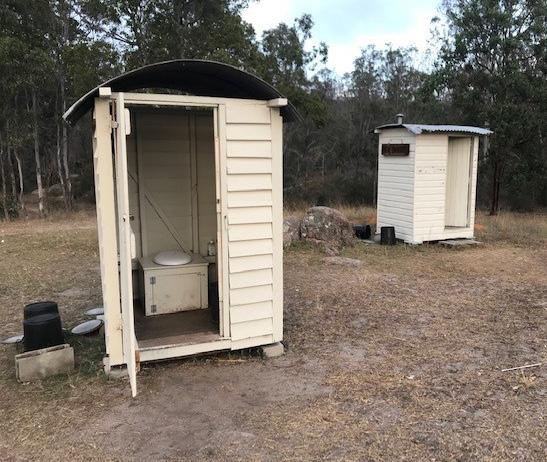
Pictured: (left) the new firepit at Cronins; and new 'dunnies'.
Ironbark is a much-anticipated rite of passage for all St Peters students. Since 1976, students have farewelled technology to embrace the challenges of communal living, learning more about themselves than they could’ve thought possible.
For years, Ironbark has gone ahead without any major interruptions. While the program has seen minor changes—a reduction in length and modern (inside!) toilets, to name a few—the overall values and experiences have stayed the same. That is, until the last two years.
In our June edition of Plus Ultra we covered the challenges Year 9LM faced with the 2019 Australian Bushfires. We wrote, then, that their experience was the most eventful five weeks in the history of the program...
Enter 2020.
This year has raised the bar again for the College’s property at Crows Nest. From the lockdown period, which prevented students from travelling there at all, to social distancing requirements that altered the experience for the foreseeable future and caused families to really cut the cord quickly (with parents no longer allowed to get out of their cars to farewell their children or collect them from the property at the end of the experience), it’s been a wild ride for Ironbark. So just what’s happened at the farm we all love so much, and has the overall experience been affected? We spoke to Year 9 students, Matthew Harvie and Gabby Schmidt, to find out. “I was in the 9EF group of 2020,” Matthew told us—the first group to return to Ironbark after the lockdown. To ensure his group’s arrival, staff had been very busy making changes to the property. As Director of Ironbark, Matt Sullivan told us, Ironbark’s COVID-Safe Plan required a 50% occupancy reduction in all dorms (one person per four square metres). Throughout the program, only half the students would be able to sleep in the dorms (on the bottom bunks only) and the other half would sleep at Cronins—Ironbark’s pioneering camp.
“With the students needing to spend at least nine nights at Cronins, instead of two,” Matt said, “the place needed an overhaul and remodel. The communal camp-fire pit was moved into the middle of the large shed area; designated, weatherproof sleeping spaces were established for the boys and girls; and more thunderbox toilets were installed.”
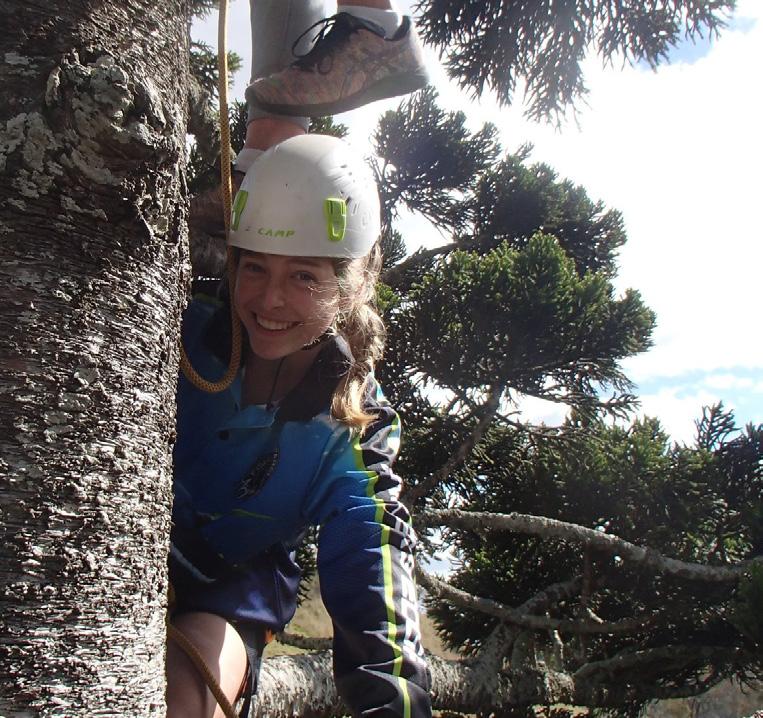
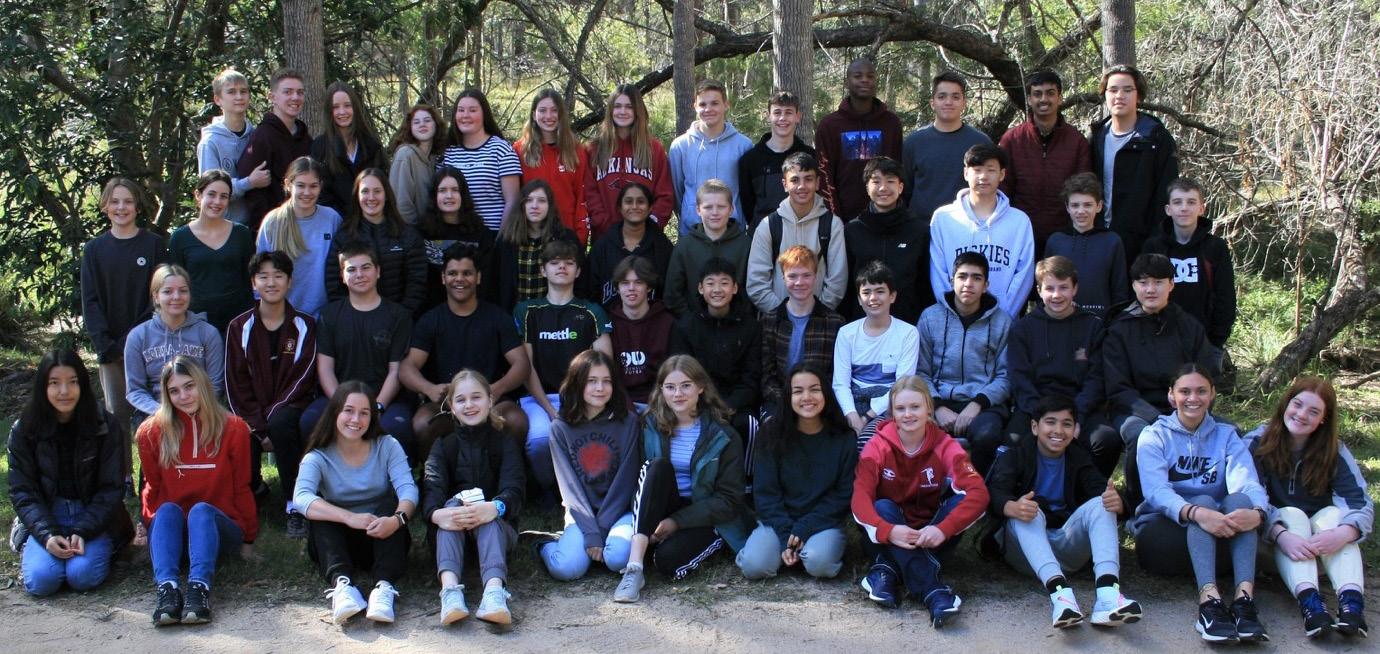


Pictured: (spine, top to bottom) Gabby Schmidt; social distancing in the dorms; and, during meals at Kibung Ples; the COVID Safe Food service at Kibung Ples. (above) 9EF group; and, their contribution to Ironbark.
Back at the base, meals in the dorms ceased. Kibung Ples was transformed to become the new mealtime location, ensuring compliance with COVID food safety standards for social distancing and service. Finally, the overall experience was reduced to four weeks per group. Nevertheless, the students were just grateful that they could attend.
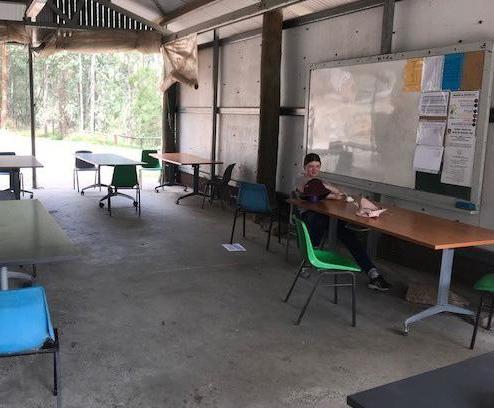
“My original Ironbark experience was meant to be in June,” Gabby told us. “We were told to keep our hopes high, but it was officially called off just a few days before we were due to leave.”
While in different groups, Gabby and Matthew threw themselves into Ironbark when they finally got the chance to go. They made new friends, learnt new skills and enjoyed all the iconic Ironbark activities on offer.
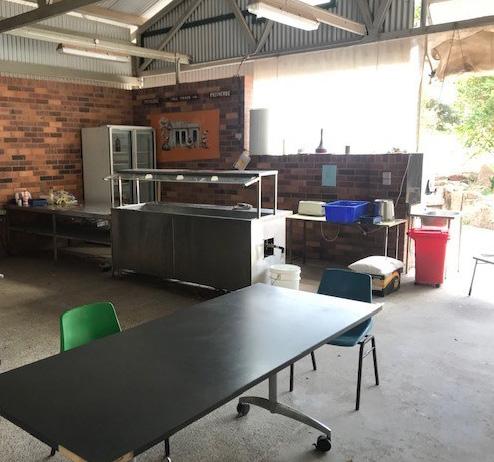
“I feel like, because of COVID, everything was slightly stricter when we went,” Gabby said. “We got to do most of the same activities and experiences as previous groups, but there may have been a few more rules in place.”
Despite this, their takeaway was positive. “Growing up in the St Peters community, I had always heard stories about Ironbark,” Matthew told us. “They sounded daunting, however whoever was telling them always mentioned that they still enjoyed it. I never understood how that could be possible until I went myself.”
Matthew shared that, before he went, people tended to reflect on the major activities, but that they weren’t really what made the Ironbark experience for him.
“What truly made Ironbark was the small things—making new friends, the companionship and the community it created.”
When asked whether they thought ongoing restrictions would ruin Ironbark for subsequent groups, both he and Gabby said no.
“I believe that, no matter the circumstances,” Matthew said, “any student who gets to experience Ironbark will gain an abundance of skills and life lessons.”
Gabby followed with some advice that was reassuringly similar to that which we’ve heard from generations of returned Ironbark students.
“Always get involved wherever you can, because, the moment you get back to Brisbane, you’ll be wishing you were back at Ironbark!” It’s comforting to know that not even a pandemic can shake the Ironbark effect.

